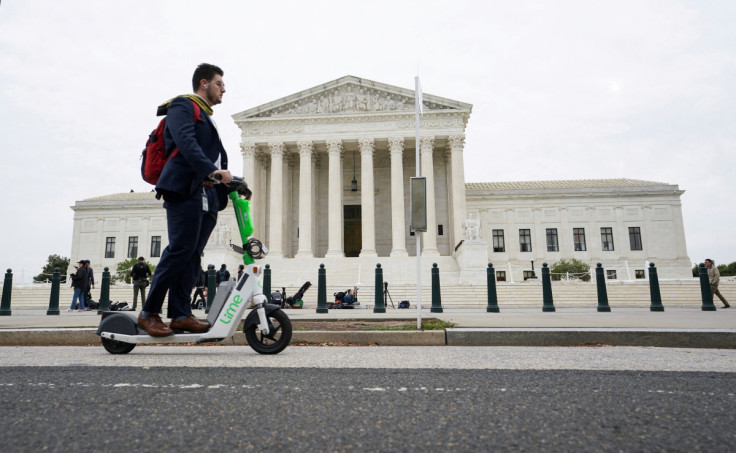U.S. Supreme Court Backs Republican In Pennsylvania Ballots Case

The U.S. Supreme Court on Tuesday sided with an unsuccessful Republican candidate for a judgeship in Pennsylvania and threw out a lower court's ruling that had allowed the counting of mail-in ballots in the race that he had sought to exclude because voters neglected to write the date on them.
The justices vacated the ruling by the Philadelphia-based 3rd U.S. Circuit Court of Appeals as requested by David Ritter, who lost his 2021 bid for a spot on the Lehigh County Court of Common Pleas to a Democratic rival by five votes after 257 absentee ballots without date notations were counted.
The high court's action means that the 3rd Circuit ruling cannot be used as a precedent in the three states covered by this regional federal appellate court - Pennsylvania, New Jersey and Delaware - to allow the counting of ballots with minor flaws such as the voter failing to fill in the date. Vacating the ruling does not change Ritter's loss in his race.
The 3rd Circuit had ruled that invalidating the undated ballots would violate a provision of a landmark 1964 federal law called the Civil Rights Act aimed at ensuring that minor ballot errors do not deny someone the right to vote.
Under Pennsylvania law, voters are required to write the date on the outer envelope of a mail-in ballot. The 3rd Circuit found that the requirement is "immaterial" to determining their qualifications as voters.
In his appeal, Ritter argued that mail-in ballot rules improve election administration and deter fraud.
The U.S. Supreme Court in June denied Ritter's bid to block the counting of the undated ballots. Conservative Justices Samuel Alito, Clarence Thomas and Neil Gorsuch dissented from that decision. Alito wrote that the 3rd Circuit ruling "could well affect the outcome" of elections this year. Voters go to the polls on Nov. 8 in midterm elections in which Republicans are seeking to seize control of Congress from the Democrats.
Ritter told the Supreme Court that unless the 3rd Circuit ruling was wiped off the books, it would allow undated mail-in ballots to be counted in future elections in Pennsylvania and would "threaten to invalidate countless regulations of mail-in voting" nationwide. Pennsylvania Republican legislators echoed Ritter's warning.
The Supreme Court has a 6-3 conservative majority.
The Civil Rights Act provision at issue prohibits officials from disqualifying a voter's ballot for an error that is not "material" to determining whether the person was qualified to vote, such as their age or citizenship. The law targeted practices common in Southern states during the era of racial segregation that used minor ballot mistakes to block Black people from voting.
Numerous Republican-led states have enacted tougher voting rules, including for mail-in ballots, in the wake of Republican Donald Trump's presidential re-election loss in 2020 to Democrat Joe Biden. Trump has made false claims that the election was stolen from him through widespread voting fraud. More Democratic voters than Republicans cast votes by mail in the 2020 election.
In Pennsylvania, there is a closely watched U.S. Senate race between Republican Mehmet Oz and Democrat John Fetterman that could help determine which party controls that chamber.
The May ruling by the 3rd Circuit came in a lawsuit by several elderly Democratic and Republican voters upset that their votes would not be counted for neglecting to write the date on the mail-in ballot envelope - what they called a "meaningless technicality."
Pennsylvania Republican legislators in a filing to the Supreme Court said the 3rd Circuit's ruling threatened an orderly election in November. A number of conservative groups active in voting issues also urged the justices to vacate the 3rd Circuit's ruling.
The 3rd Circuit's rulings also apply to the U.S. Virgin Islands territory.
© Copyright Thomson Reuters {{Year}}. All rights reserved.





















